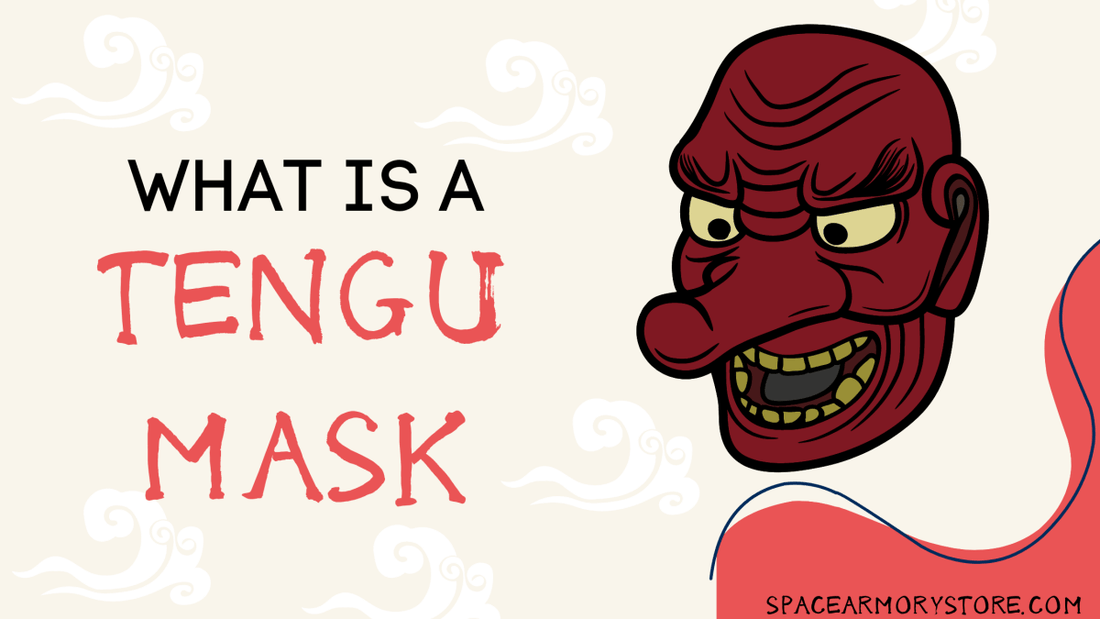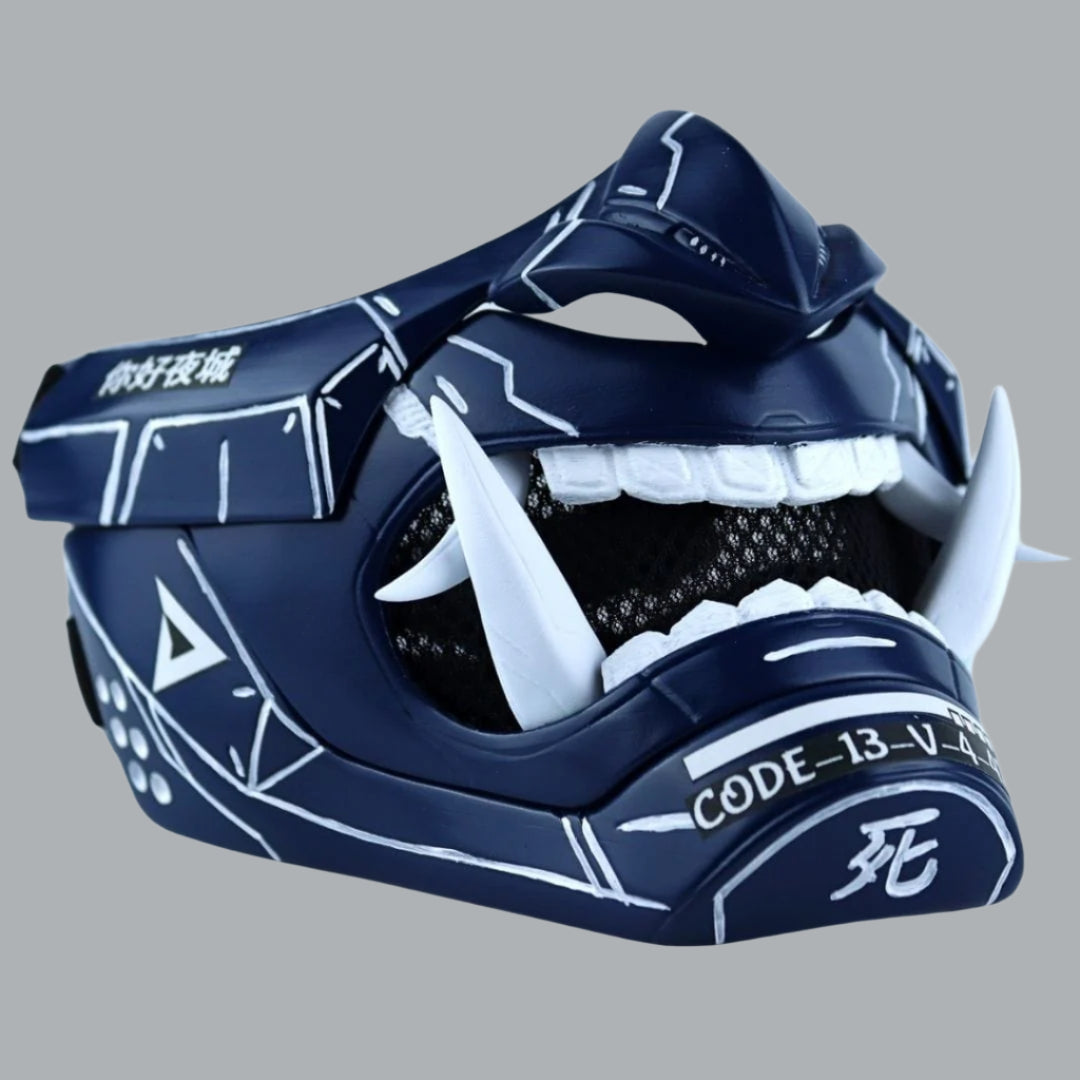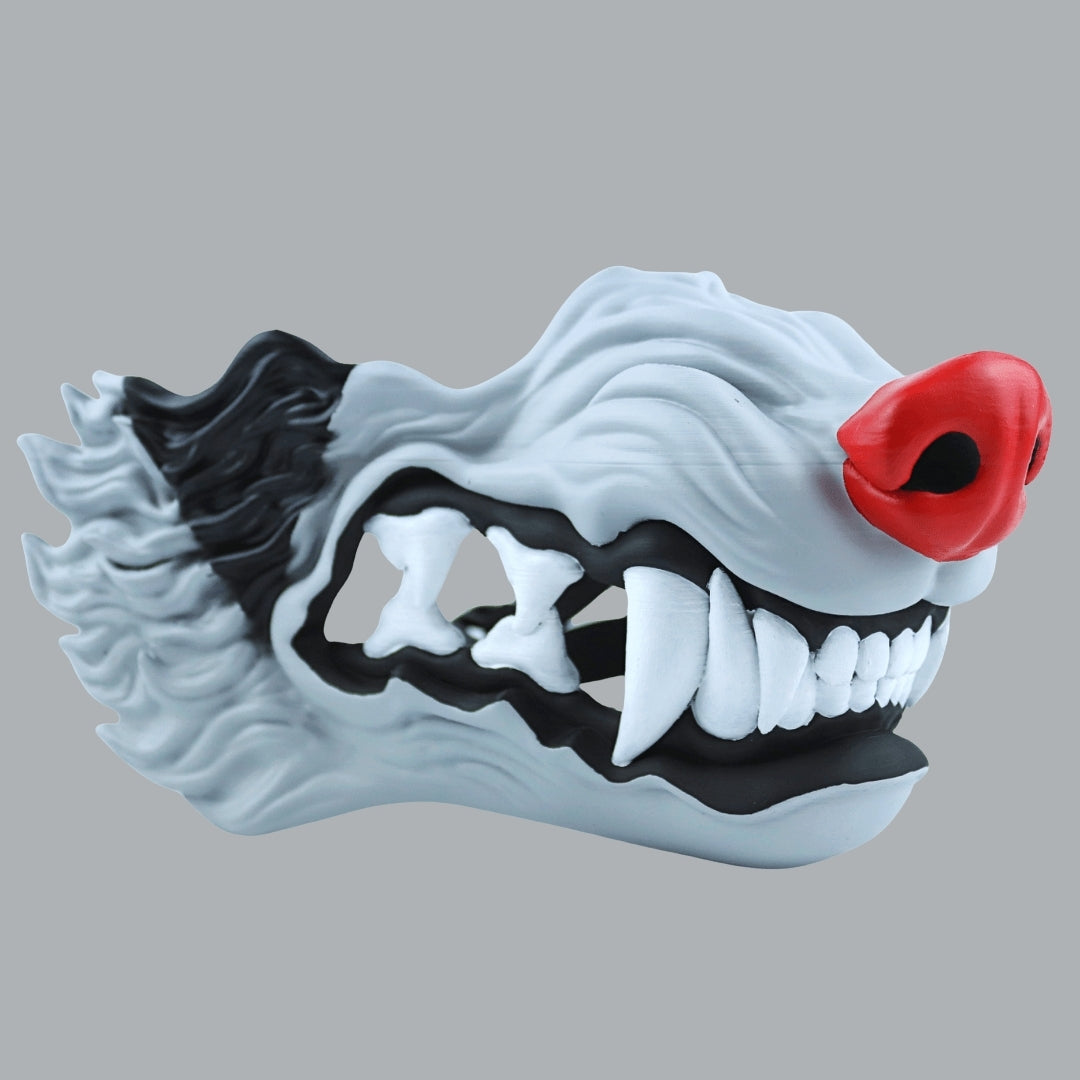
The Ultimate Guide to Tengu Masks: Origins, Variations, and Symbolism
Origins of Tengu Masks:
Tengu masks trace their roots back to ancient Japan, where they played a significant role in folklore and traditional performing arts. The Tengu, often depicted as a bird-like creature with a long nose, sharp fangs, and distinct wings, holds a special place in Japanese mythology. These mythical beings were believed to possess supernatural powers, and their masks were used to invoke their presence during rituals and performances.
The Tengu masks were initially created as a way to pay homage to the Tengu and seek their blessings. Over time, they became an integral part of Noh and Kyogen theater, where actors would wear them to portray different characters. These masks not only added an element of mystery and intrigue but also allowed the actors to transform into powerful and otherworldly beings.

Variations of Tengu Masks:
Tengu masks come in various forms, each with its unique characteristics and symbolism. Here are some of the most popular variations:
- Hannya Tengu Mask: The Hannya Tengu mask is perhaps the most recognizable and widely used Tengu mask. It features a fearsome expression with bulging eyes, sharp fangs, and a menacingly long nose. The Hannya Tengu mask symbolizes anger, jealousy, and the wrathful nature of the Tengu.
- Ko-omote Tengu Mask: The Ko-omote Tengu mask, on the other hand, presents a more serene and calm expression. It is often associated with benevolent and protective Tengu spirits. This mask is characterized by a serene smile, delicate features, and a shorter nose.
- Karasu Tengu Mask: The Karasu Tengu mask represents the crow-like appearance of the Tengu. It features a prominent beak, sharp eyes, and distinct feathers. The Karasu Tengu mask symbolizes intelligence, cunningness, and agility.
- Daitengu Mask: The Daitengu mask is the embodiment of the most powerful and revered Tengu. It showcases an elongated nose, pronounced eyebrows, and an imposing presence. The Daitengu mask is often associated with wisdom, spiritual enlightenment, and divine intervention.

Symbolism of Tengu Masks:
Tengu masks hold deep symbolism and cultural significance in Japanese folklore. Here are some of the symbolic meanings associated with these masks:
- Protection: Tengu masks were believed to possess protective qualities, warding off evil spirits and bringing good fortune. In this sense, wearing a Tengu mask was akin to invoking the powers of the Tengu for personal protection.
- Transformation: Tengu masks allowed actors to transform into mythical beings, blurring the line between reality and fantasy. They symbolize the ability to transcend human limitations and tap into the supernatural realm.
- Wisdom: The Tengu are often portrayed as wise and knowledgeable beings. By wearing a Tengu mask, individuals could emulate these qualities and seek guidance from the spirits of the Tengu.
- Power: Tengu masks are imbued with a sense of power and authority. They represent the extraordinary abilities and supernatural strength of the Tengu, allowing wearers to tap into their own inner power.

Frequently Asked Questions about Tengu Masks:
Q: What materials are Tengu masks made from?
A: Tengu masks are traditionally made from wood, specifically Japanese cypress or paulownia. However, modern variations may use other materials such as plastic or resin.
Q: Can anyone wear a Tengu mask?
A: Yes, anyone can wear a Tengu mask. In fact, Tengu masks have become popular not only in traditional Japanese theater but also in contemporary fashion and cosplay.
Q: Are Tengu masks only used in Japan?
A: While Tengu masks originated in Japan, they have gained popularity worldwide. They are now used in various cultural events, festivals, and even as decorative items.
Q: What is the significance of the long nose on Tengu masks?
A: The long nose on Tengu masks represents the extraordinary senses and heightened perception of the Tengu. It is believed to symbolize their ability to see beyond human limitations.
Q: Are there any specific rituals associated with Tengu masks?
A: Yes, there are specific rituals associated with Tengu masks, particularly in traditional Japanese theater. These rituals involve the purification of the mask and the invocation of the Tengu spirits.
In conclusion, Tengu masks are not just mere decorative items. They are steeped in centuries-old tradition, mythology, and symbolism. From their origins in ancient Japan to their various forms and hidden meanings, these masks continue to captivate and inspire. Whether you are a theater enthusiast, a collector, or simply intrigued by the mystical world of the Tengu, exploring the realm of Tengu masks is an adventure that will leave you spellbound. So, why not embrace the magic and mystery of the Tengu masks and let yourself be transported to a world where imagination knows no bounds?









